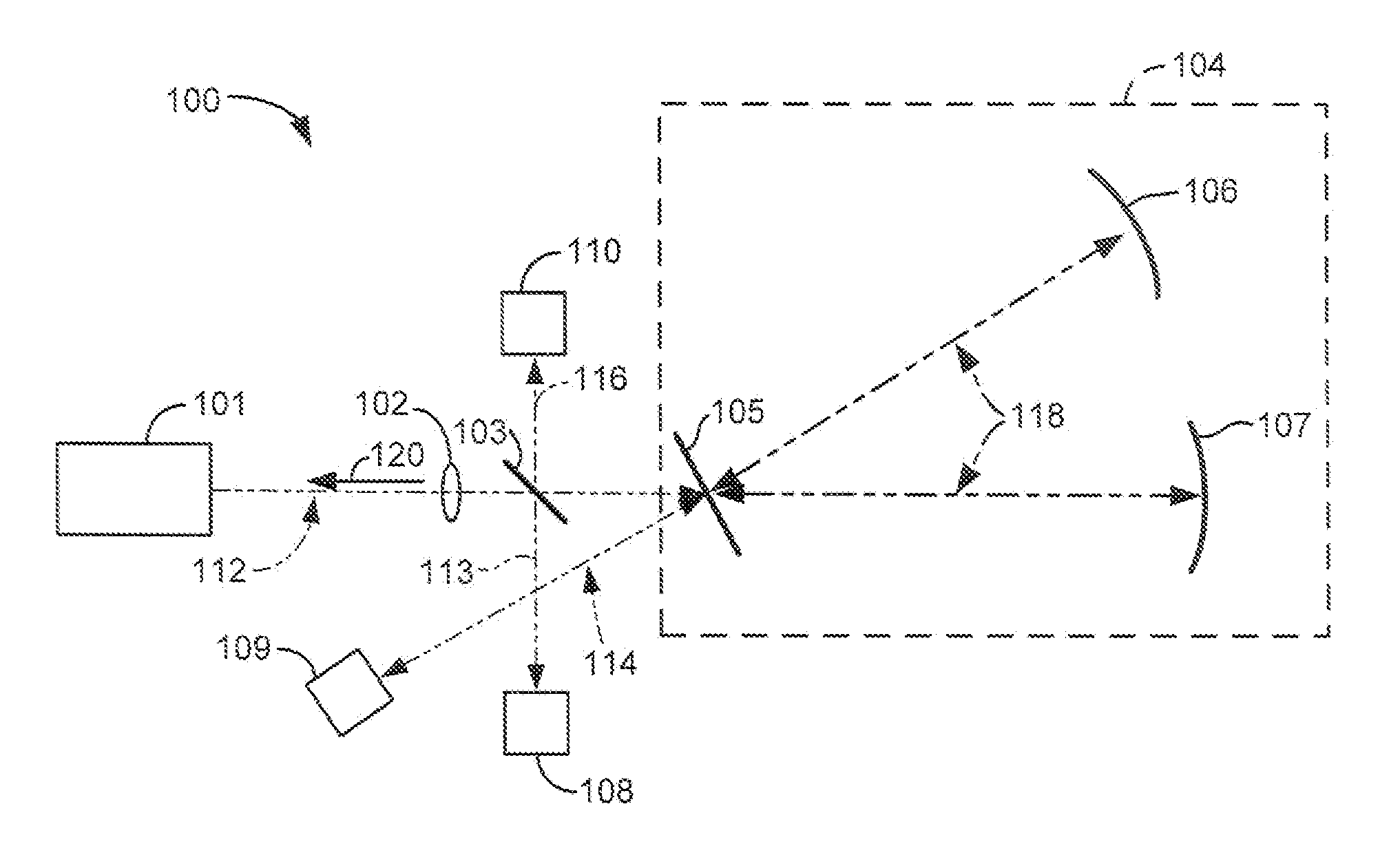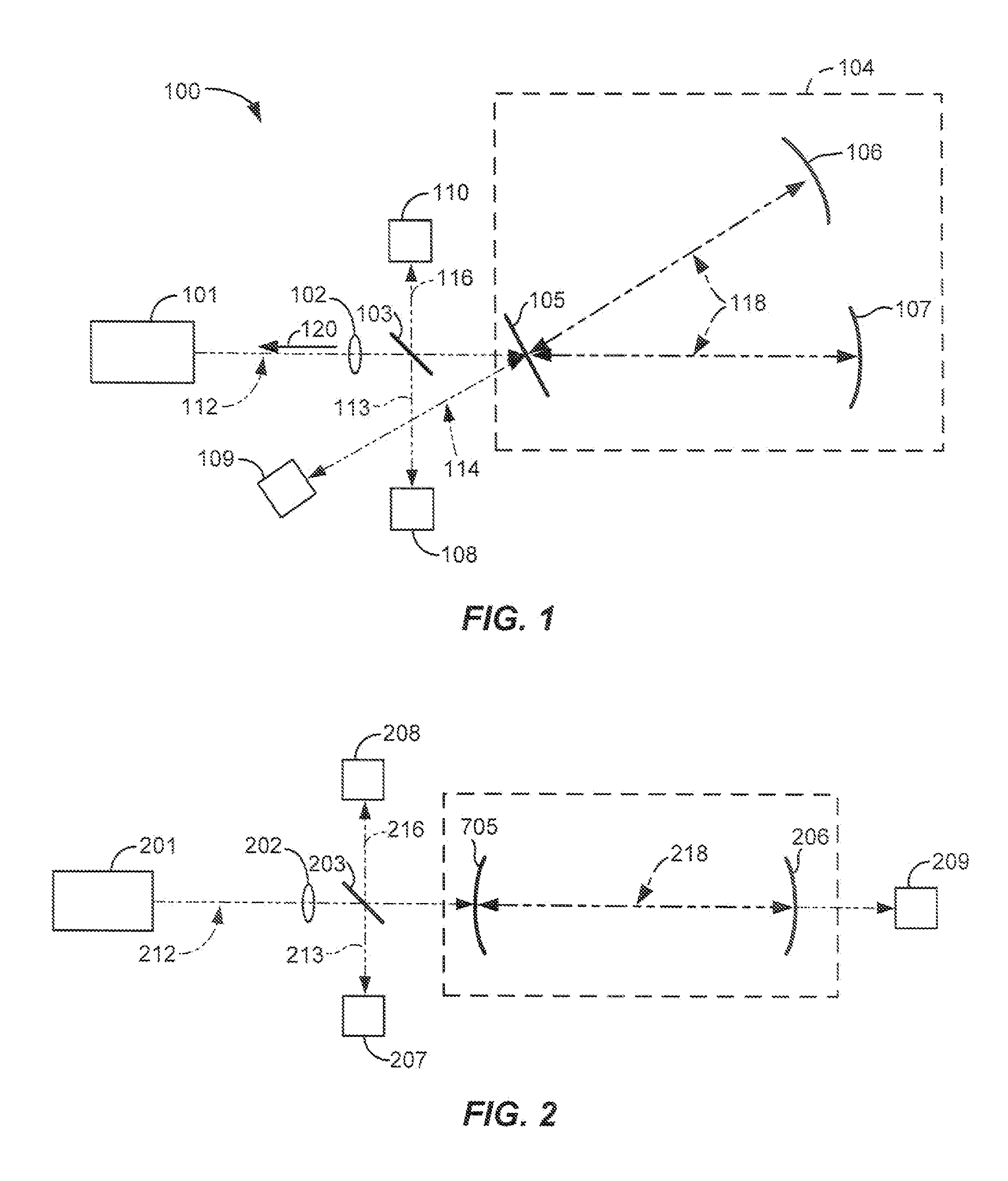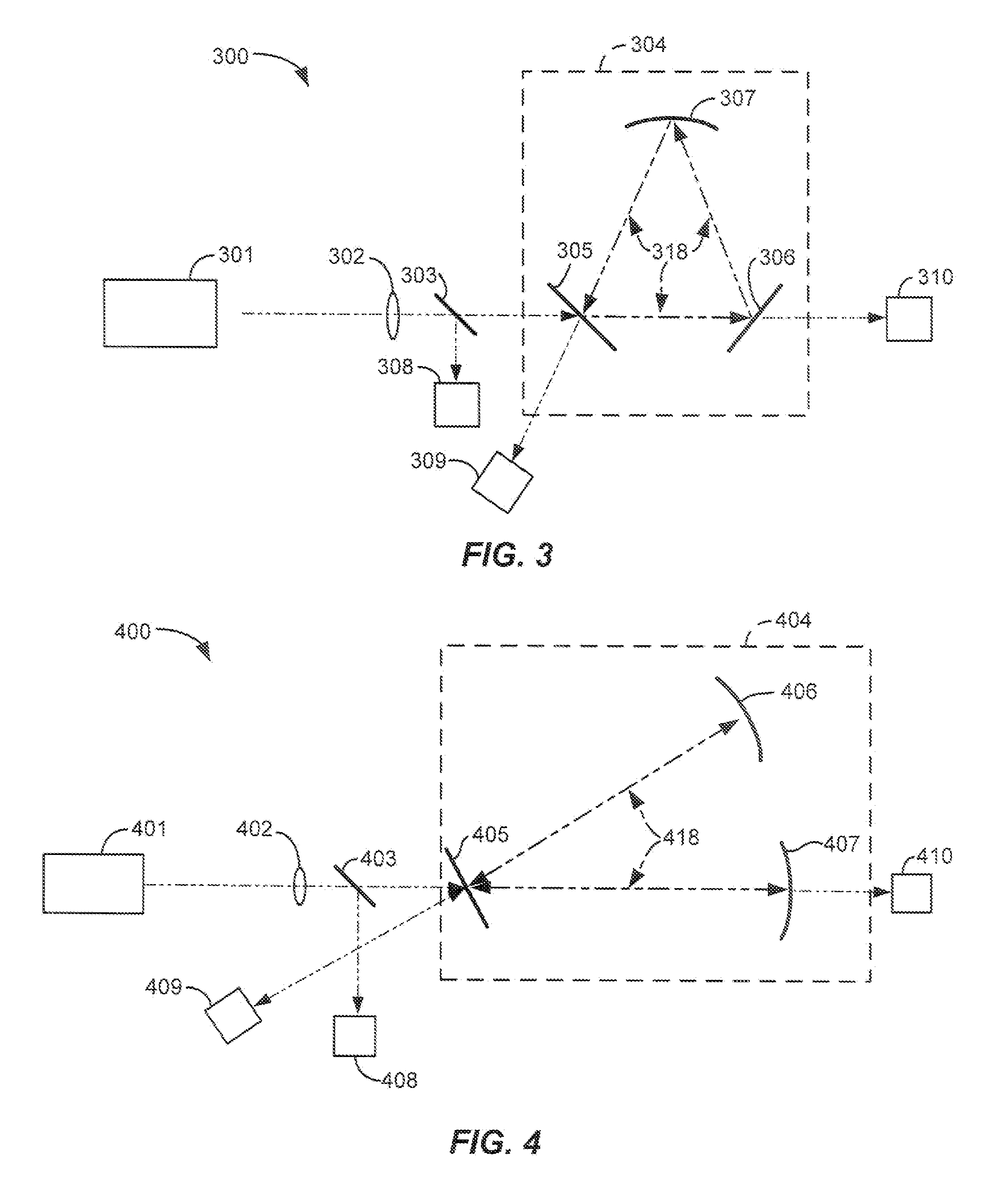Laser based cavity enhanced optical absorption gas analyzer
a gas analyzer and laser-based technology, applied in the field of trace gas detection, can solve the problems of inability to precisely inability to accurately estimate the coupling efficiency, and inability to accurately measure the coupling efficiency, so as to achieve the effect of improving the measurement capability
- Summary
- Abstract
- Description
- Claims
- Application Information
AI Technical Summary
Benefits of technology
Problems solved by technology
Method used
Image
Examples
Embodiment Construction
[0025]The present invention provides cavity enhanced absorption spectroscopy systems and methods for measuring trace gases with improved measurement capability that is not sensitive to laser-cavity coupling.
[0026]Embodiments of the present invention provide simple, precise and reliable cavity enhanced absorption spectroscopy systems and methods for detecting trace gases that has higher sensitivity, accuracy and stability as compared to existing systems and methods based upon similar principles. This is achieved by measuring three optical signals, a combination of which completely characterizes the total cavity. Embodiments of the present invention significantly simplify the baseline calibration problem, as the normalized signal only depends on total cavity loss, and not the coupling efficiency, as in traditional approaches. For example, three different exemplary configurations shown in FIGS. 1-3 are designed to allow for measuring three optical signals, which characterize the cavity...
PUM
 Login to View More
Login to View More Abstract
Description
Claims
Application Information
 Login to View More
Login to View More - R&D
- Intellectual Property
- Life Sciences
- Materials
- Tech Scout
- Unparalleled Data Quality
- Higher Quality Content
- 60% Fewer Hallucinations
Browse by: Latest US Patents, China's latest patents, Technical Efficacy Thesaurus, Application Domain, Technology Topic, Popular Technical Reports.
© 2025 PatSnap. All rights reserved.Legal|Privacy policy|Modern Slavery Act Transparency Statement|Sitemap|About US| Contact US: help@patsnap.com



